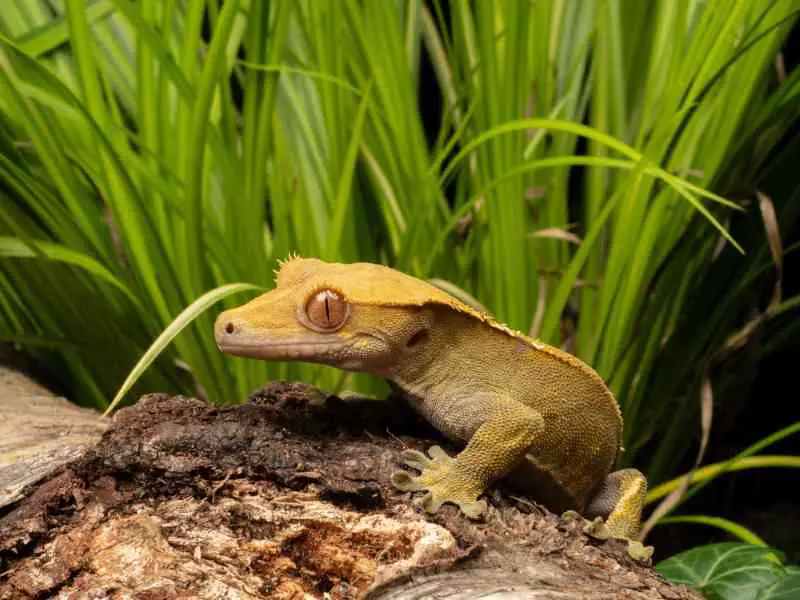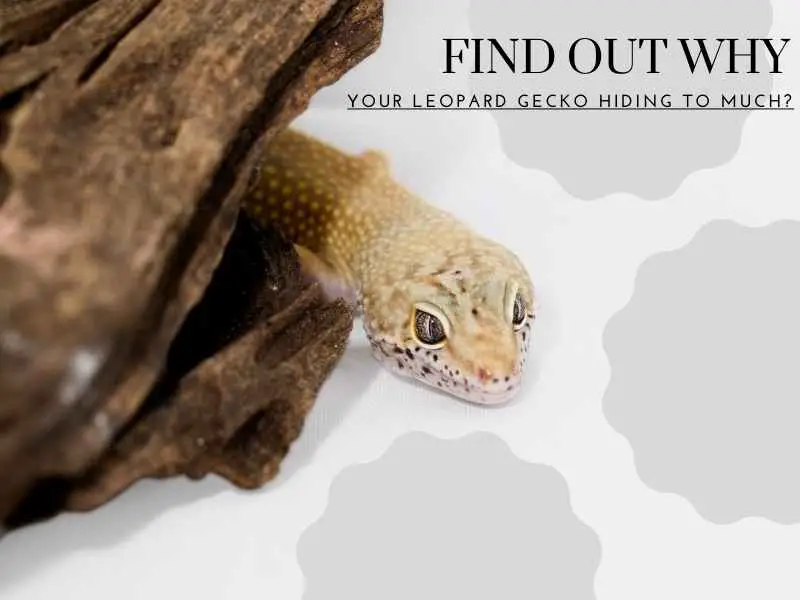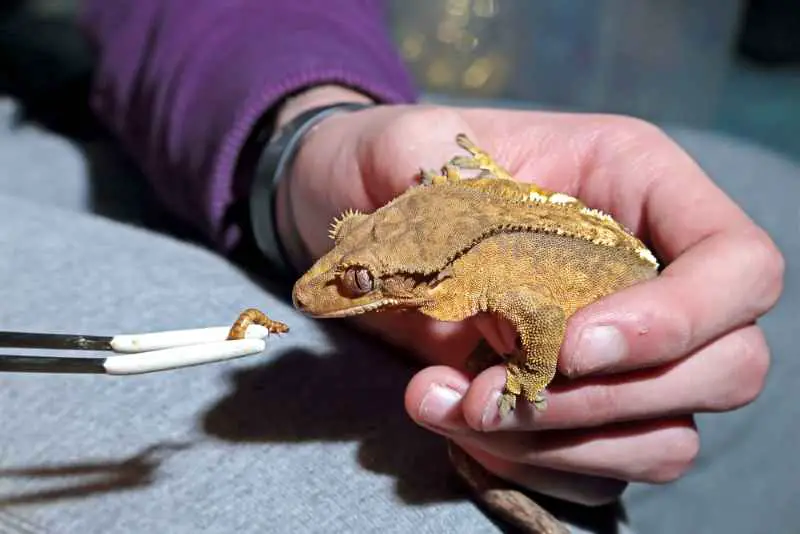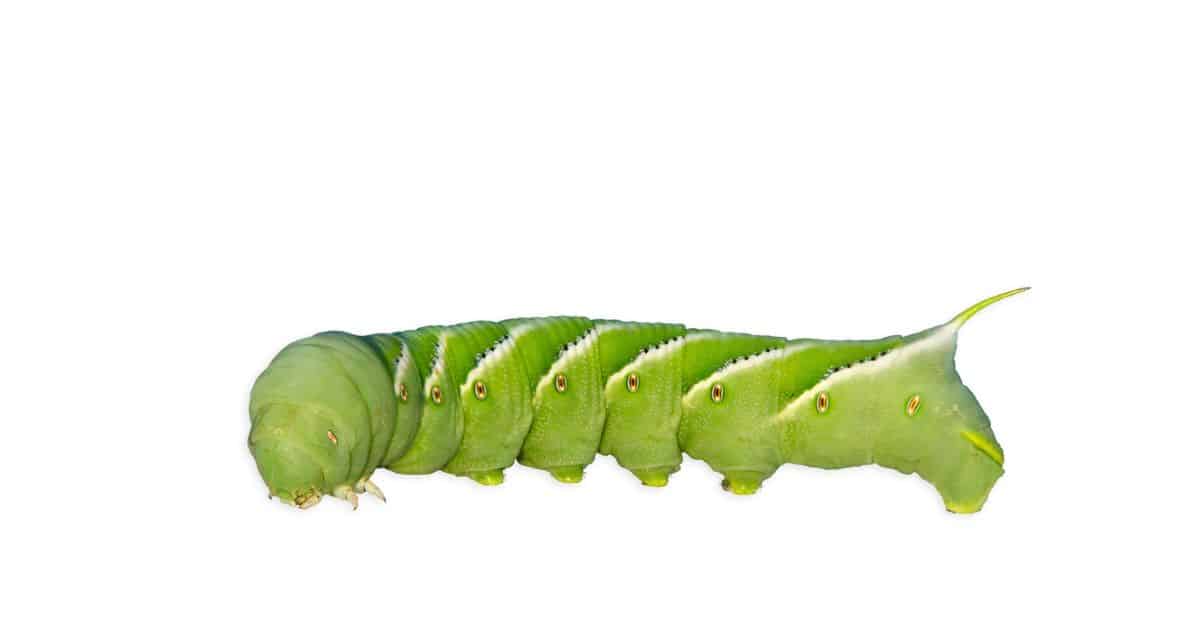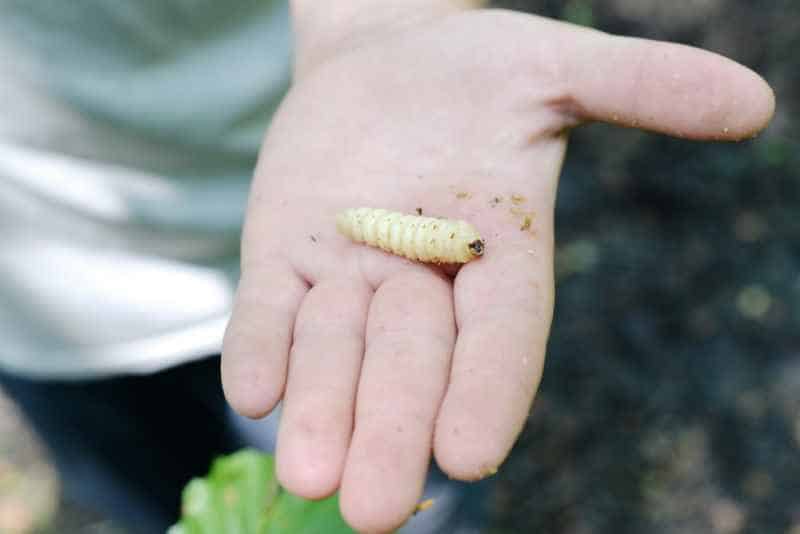Gecko Poop Droppings: Everything You Need To Know
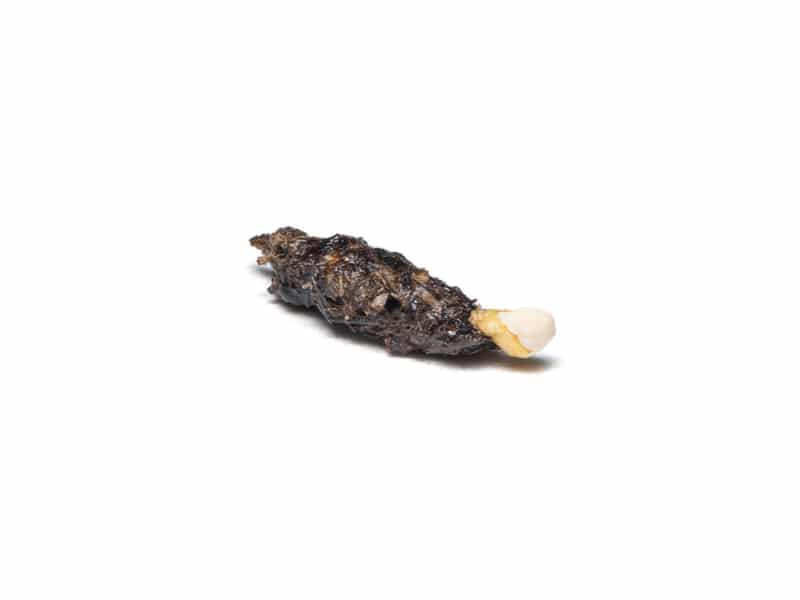
If you have an African Fat Tailed Gecko and you want to know if it’s healthy and doing well, then one of the most important signs to look out for is not the most glamorous-It’s poop!
Here, you’re going to find all things related to poop so you can save as much time and bother as possible. This list will look at what normal poop looks like for an African fat tailed gecko, how often it needs to poop and a whole lot more, so let’s dig in!
Contents
What Does Gecko Poop Look Like?
Normal, healthy poop is dark brown, well formed, and has a whitish, chalky textured urate attached. This is very similar to bird droppings, who also eat insects and plants like geckos.
The white substance that is excreted by the African fat tailed gecko has been studied extensively and has been found to be made up of three main components: uric acid, urea, and creatinine.
If it doesn’t look right or watery
Sometimes the poop of an African fat tail gecko can look different than normal. One reason could be that they’ve eaten some of their substrate and that has caused digestive issues. Ingested loose sand can cause problems so it’s best to use paper, which is not only good for easy cleaning but a great way to keep a track of the poop.
If you use Orchid bark or compressed coconut bedding then that should only need cleaning once a week.
If you examine the poop and find bits and pieces of insects in the dropping then this is a sign the gecko was not able to digest its food properly. Again, this could be because of the tank temperature being too low, which does not help digestion.
Remember that the enclosure can also be a leading cause. An enclosure that is dirty and unsanitary is more likely to have dangerous bacteria and fungi lurking around, making your gecko sick. In addition to this, providing your gecko with incorrect temperatures and humidity is a common reason for digestive problems.
Consider using a digital thermometer and hygrometer to ensure that you keep a note of the humidity and temperature levels inside the enclosure to keep your pet happy and healthy.
Occasional runny stools could be because of a change in diet which can take some time to adjust. Sometimes the stools can be gloopy like soup with brown bits and again this could be because of diet change. But, it can be a sign of weak immunity and could also mean there is a parasitic infection like Pinworms, Entamoeba, and Cryptosporidiosis.
Diarrhea may be caused by stress and/or viruses. Oftentimes, diarrhea is accompanied by watery stool. If your pet gets too stressed out, it can cause a lot of imbalance to their digestive system
Visiting the vet is very important if there is chronic diarrhea as dehydration can become a serious risk and can lead to death.
It is recommended to soak the gecko in lukewarm water while following instructions from your vet.
African fat-tailed geckos can become ill due to a common disease called Cryptosporidiosis, which is the most common infection of all. This disease is associated with parasites that live in soil and water, the disease can cause huge problems for a gecko.
It will usually make the fat tail look very thin as well. The gecko may also experience runny stools. If you come across this, then it’s very important to thoroughly clean the feeding area and the rest of the enclosure and see if there’s any difference in the stools. If not then it’s best to take your gecko to see a vet.
You may sometimes see your African gecko pass some white poop. If white poop appears after eating lizard shed skin, then it could mean that there was an ingested piece of lizard skin.
However, if they regurgitate the skin instead of being able to digest it, then it can be a cause for concern and could mean they need testing for cryptosporidium.
You might notice some watery droppings with weird red or pinkish curves and these are usually worms. They’re not easy to spot and could mean a parasitic infection. It could also be a sign of an aggravated bacterial infection. Worms in the dropping don’t necessarily mean parasites and it could be that fly maggots have formed in the poop due to being left out for a while.
Green droppings can be soft or hard and have a mint-like color at the tail of the dropping. Sometimes it can be a combination of brown and green or just green overall. This is due to a change of diet. The culprit again could be the ingestion of substrate. Another possibility is the gecko suffering from diarrhea, where bile is not properly broken down, which turns the dropping green. If it is runny and green, it’s an indication of internal parasites.
How Often Do They Poop?
Baby African Fat Tailed geckos can poop quite a lot because they’re eating frequent meals and are growing. They don’t have a lot of fat in their tails compared to adult geckos and so need to eat more and that means passing poop more often.
Juvenile geckos over 5 months old might only go once a day because they’re still developing and this affects their digestive system and their appetite.
Adults can poop every day if they eat well and they sometimes can go a day or two without pooping.
If They Are Not Pooping Enough
One reason your gecko does not poop is if you’ve just bought him/her and it’s not used to its surroundings. It can take a while for your gecko to settle into their new home and this can cause it to constipate. A new African Fat Tailed gecko is very introverted and needs a lot of time and space to feel comfortable. This stressful time of adjusting can affect their eating and pooping habits. It can take several days in the beginning so you’ll have to be patient.
Another characteristic of these geckos is that they like to poop in obscure places and not out in the open. So you’ll probably have to do a search and find any poop. It’s best to do a check twice a day.
Dehydration could be another reason your gecko isn’t pooping enough. It’s best to monitor your geckos’ water intake and to change the water bowl regularly.
How often should you clean their poop
A quick clean of their tanks daily is easy to do and maintain, making sure you remove their poop every single day. This will minimize their chances at contracting the fecal borne disease cryptosporidiosis. Deep cleaning their tank should be done at least once a month which includes a full scrub down and disinfecting.
Is it supposed to smell bad
African fat-tailed geckos’ poop does smell, and it smells more when it’s fresh. Once it dries a little, the smell should be reduced.
These geckos tend to choose one spot for pooping, so it’s a good idea to place well absorbing towels that you need to throw away right after you see and smell the poop.
Foul-smelling feces could be a sign of parasitic infection – it’s best to then collect the poop and have it tested by a vet.
Do geckos ever eat their poop?
It’s not common for geckos to eat their own poop. If you do come across an instance then it’s usually because they’ve mistaken it for food. But they have been seen to spit it out immediately after realizing it’s not food.
There may be two reasons why a gecko might eat poop:
1. Nutritional deficiency
2. A lack of food
But this is usually associated with geckos in the wild who, for whatever reason, are not able to access food or get the complete nutrition they need.
The chances of your gecko doing this is very slim; especially if it gets a good supply of delicious food!
